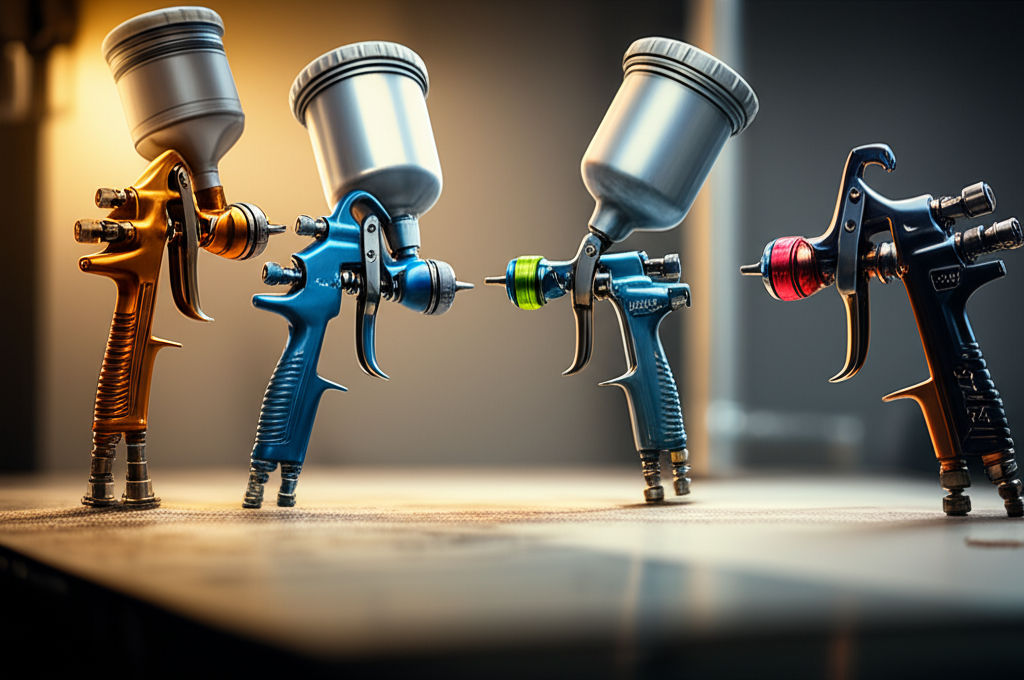Top Defenses in Criminal Trials You Should Know
Ellie Moore

Photo: Top Defenses in Criminal Trials You Should Know
Top Defenses in Criminal Trials You Should Know
Criminal trials can be intense, nerve-wracking affairs. Whether you’re someone who’s been accused of a crime or just want to understand the intricacies of the justice system, it’s crucial to understand the types of defenses that can be used in a criminal trial. Defending oneself against criminal charges isn't just about innocence it’s about challenging the evidence, raising reasonable doubts, or justifying one’s actions based on the law. So, let’s break down the top defenses that can make all the difference in a criminal trial.
Understanding Criminal Defenses: A Quick Overview
Criminal defense is the legal strategy used by defendants to avoid a conviction. The strategy may vary depending on the nature of the case, the evidence, and the charges. Some defenses challenge the evidence itself, while others question the legal procedures. Ultimately, criminal defense attorneys aim to cast doubt on the prosecution’s case, making it difficult to prove guilt beyond a reasonable doubt.
1. Innocence
It might seem like a no-brainer, but claiming innocence is often the strongest and most straightforward defense in a criminal trial. If the defendant can demonstrate that they did not commit the crime, they should be acquitted. However, proving innocence can be challenging, especially if there is overwhelming evidence to the contrary.
Example: A person accused of theft may present an alibi or prove they were elsewhere when the crime occurred. If they can show they did not have the opportunity or intention to commit the crime, this could be a strong defense.
2. Self-Defense
Self-defense is one of the most commonly used legal defenses. It is based on the idea that the defendant used force to protect themselves from an imminent threat of harm. In cases where violence was used, the defendant can argue that their actions were necessary to prevent injury or death.
However, self-defense isn’t always straightforward. The use of force must be reasonable and proportionate to the threat. In other words, excessive force or a preemptive strike may not be justified.
Example: A person who is attacked on the street may use self-defense if they strike back in an effort to protect themselves. If the aggressor was the first to initiate violence, self-defense could be the appropriate argument.
3. Insanity Defense
The insanity defense is one of the most debated and controversial criminal defenses. It argues that the defendant should not be held criminally responsible for their actions due to mental illness or incapacity at the time the crime was committed. To be successful, the defendant must prove that they were unable to understand the nature of their actions or distinguish right from wrong.
Example: A defendant who suffers from a severe mental disorder, like schizophrenia, may not have been able to comprehend that their actions were illegal or immoral when they committed a crime. However, the insanity defense often leads to a different outcome, such as a commitment to a mental health institution rather than a prison sentence.
4. Duress
The defense of duress is used when a defendant commits a crime because they were coerced or threatened with imminent harm. If the defendant can prove that they acted under duress and did not have a choice, they may be absolved of criminal responsibility.
Example: If someone is forced to steal a car at gunpoint to save their life, they may use duress as a defense. The key here is that the defendant must prove that they were under a significant threat that made it impossible to avoid committing the crime.
5. Entrapment
Entrapment occurs when law enforcement officers encourage or induce someone to commit a crime they would not have otherwise committed. This defense argues that the defendant was lured into committing a crime by a government agent.
Example: A person who has no prior intention to commit a crime may be approached by an undercover police officer offering them illegal drugs. If the defendant can prove they were persuaded by the officer to commit the crime, they could use entrapment as their defense.
6. Alibi
An alibi is one of the most effective ways to prove innocence in a criminal trial. It involves showing that the defendant was in a different location at the time the crime was committed, making it impossible for them to have committed the alleged offense.
Example: A person accused of robbery may provide video footage from a nearby store, showing they were shopping at the exact time of the crime. An alibi can be a powerful tool in disproving the prosecution’s case, particularly when combined with other evidence, such as witness testimony or phone records.
7. Mistaken Identity
Mistaken identity is another defense where the defendant argues that they were incorrectly identified as the perpetrator of the crime. This can happen in a variety of situations, especially if the identification was made by eyewitness testimony, which can often be unreliable.
Example: If a person is wrongfully accused of a crime based on a witness who misidentifies them in a lineup, they could use mistaken identity as their defense. Providing solid evidence, such as an alibi or lack of physical evidence tying them to the crime, can help in these cases.
8. Lack of Evidence
One of the simplest defenses a criminal defense attorney might use is the argument that the prosecution has failed to present sufficient evidence to convict the defendant. In criminal law, the prosecution has the burden of proof, and they must prove the defendant’s guilt beyond a reasonable doubt. If the evidence is weak or unclear, the defendant can argue for dismissal or acquittal.
Example: A defendant accused of drug trafficking might argue that there is no physical evidence, such as drugs or paraphernalia, linking them to the crime. If the evidence is circumstantial and doesn’t establish guilt, the defense can argue that the case should not proceed to trial.
Other Defenses in Criminal Trials
9. Statute of Limitations
Some crimes have a statute of limitations, which means that a person cannot be prosecuted for certain offenses after a specified period of time has passed. If the statute of limitations has expired, the defendant can use it as a defense to avoid prosecution.
10. Consent
In cases involving violent crimes, the defense of consent may be used. This defense argues that the alleged victim agreed to the actions that led to the crime. This is most often used in cases of assault or battery, but it can also apply in certain sexual offense cases.
Common Challenges to Criminal Defenses
Even if a defendant uses one of the defenses mentioned above, it doesn’t guarantee a successful outcome. The prosecution may challenge the defense through cross-examination, presenting counter-evidence, or questioning the credibility of witnesses. As such, criminal defense lawyers must be prepared for all challenges and be skilled at crafting a strong, persuasive case.
How a Criminal Defense Attorney Can Help
If you’re facing criminal charges, a skilled criminal defense attorney is your best ally. They can help you:
- Assess your case and determine the most effective defense strategy.
- Investigate the circumstances of the crime and gather evidence to support your defense.
- Represent you in court, challenging the prosecution's case and cross-examining witnesses.
- Provide expert legal counsel to ensure you understand your rights and options throughout the trial.
Conclusion
Navigating a criminal trial can be overwhelming, but understanding the various defenses available is a crucial first step. Whether you’re claiming innocence, arguing self-defense, or challenging the evidence, it’s important to know that criminal law offers multiple pathways for defending against charges.
If you’re ever involved in a criminal case, consulting with an experienced defense attorney can make all the difference in the outcome. Don’t hesitate to reach out to a legal expert who can evaluate your case and determine the best course of action.
Frequently Asked Questions (FAQ)
Q: What is the most common defense in a criminal trial? A: The most common defense in criminal trials is self-defense, where the defendant claims they used force to protect themselves from imminent harm.
Q: Can I use the insanity defense if I committed a crime while under stress? A: The insanity defense is typically only successful if the defendant was unable to understand the nature of their actions due to a severe mental illness, not just stress or emotional distress.
Q: What happens if I’m found not guilty by reason of insanity? A: If a defendant is found not guilty by reason of insanity, they are usually committed to a mental health facility for treatment rather than sent to prison.
Q: How important is evidence in a criminal trial defense? A: Evidence is extremely important. Without strong evidence to support your defense, it becomes much harder to convince the court of your innocence or justification.
Q: How can an alibi defense help in my case? A: An alibi defense can be crucial in proving that you were not at the scene of the crime when it occurred, helping to establish that you couldn’t have committed the alleged offense.
Finance & Investment
View All
January 23, 2025
Understanding NY Tax Finance RulesBoost rankings & engage readers with expert SEO content. Learn to create valuable, trustworthy content that satisfies user intent and meets E-E-A-T standards.
Ellie Moore

April 22, 2025
American Financing for Home LoansUnlock higher rankings & build trust with expert SEO content. Learn how E-E-A-T drives value, authority, and engagement for your brand.
Ellie Moore

November 19, 2024
5 Financial Mistakes to Avoid in Your 30sAvoid these 5 financial pitfalls in your 30s! Learn from others' mistakes and secure your financial future. Discover practical tips to navigate this crucial decade. Start planning today!
Ellie Moore

May 18, 2025
Ford Finance Login Help GuideUnlock online success with expert SEO content. Learn why it's non-negotiable for boosting rankings, building trust, and engaging your audience effectively.
Ellie Moore

June 9, 2025
Empower Finance Helping You Take ControlMaster SEO with expert content! Build authority, earn trust, and drive organic traffic. Understand E-E-A-T to create high-ranking, valuable content that truly e...
Ellie Moore

May 24, 2025
New York Taxation and Finance HelpMove beyond keywords! Discover how to craft expert SEO content using Google's E-E-A-T framework to build trust and authority.
Ellie Moore
Insurance
View AllCar accidents are costly. Our ultimate guide reveals how to secure comprehensive auto insurance, minimize financial risk, and gain essential peace of mind.
Ellie Moore
Is earthquake insurance worth it? Learn about coverage, costs, and risks to make an informed decision for your property.
Ellie Moore
Find out why term life insurance is more popular, affordable, and flexible than whole life. Choose the right coverage for you!
Ellie Moore
Enhance your coverage with insurance riders. Learn about their types, benefits, and why they’re crucial for customizing policies.
Ellie Moore
Discover how peer-to-peer insurance models operate, offering community-based risk-sharing alternatives.
Ellie Moore
Is pet insurance right for you? Explore the pros, cons, and costs of coverage to keep your furry friend healthy.
Ellie Moore
Education
View AllCompetency-based education focuses on mastery over seat time. Learn how this model is reshaping how we measure student success.
Read MoreDiscover how flipped classrooms work and why they’re becoming popular. Learn the key benefits of this innovative teaching approach.
Read MoreResearch universities play a key role in advancing knowledge. Explore how they drive innovation, discovery, and societal progress.
Read MoreForest schools offer hands-on learning in nature. Discover how this approach nurtures creativity, problem-solving, and environmental awareness in students.
Read MoreProject-based learning engages students by tackling real-world problems. Learn how this approach fosters critical thinking and creativity.
Read MoreLearn how UNESCO promotes education for all globally. Explore key initiatives and efforts aimed at fostering equal learning opportunities for everyone.
Read MorePopular Post 🔥
View All
1
2
3
4
5
6
7
8
9
10
Health






Automotive
View All
February 15, 2025
Vehicle Recalls: What You Need to Know
Concerned about a vehicle recall? Learn what steps to take and how to stay informed about recalls affecting your car. Stay safe on the road!

July 15, 2025
Choosing The Best Automotive Machine Shop Nearby
Your engine deserves expert care. Discover how to choose a top automotive machine shop for precision repairs, rebuilding, and performance.

September 3, 2025
Which Automotive Paint Gun Works Best For You
Unlock flawless car paint jobs! This guide helps you choose the best automotive paint gun for stunning results, efficiency, and control. Perfect for DIYers & pr...

July 28, 2025
Portable Automotive Air Conditioner Buying Guide
Transform hot drives into cool cruises! Our guide to portable car ACs offers instant relief, efficiency, and versatility for ultimate comfort.

July 18, 2025
Lee's Automotive Customer Experiences And Reviews
Need trusted auto repair? Explore Lee's Automotive's consistent 5-star reviews. Learn how their transparency & honest service build customer trust.

September 4, 2025
Automotive Sales Jobs Near Me You Should Try
Drive your career in auto sales! Discover a lucrative, dynamic path with high earning potential, skill development, and great growth opportunities.
















